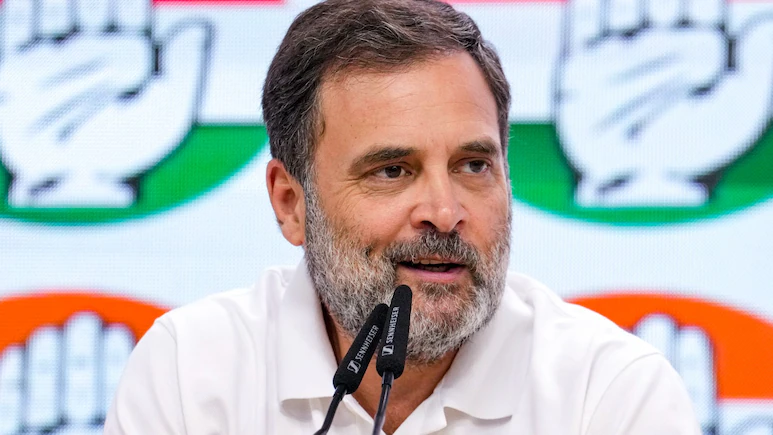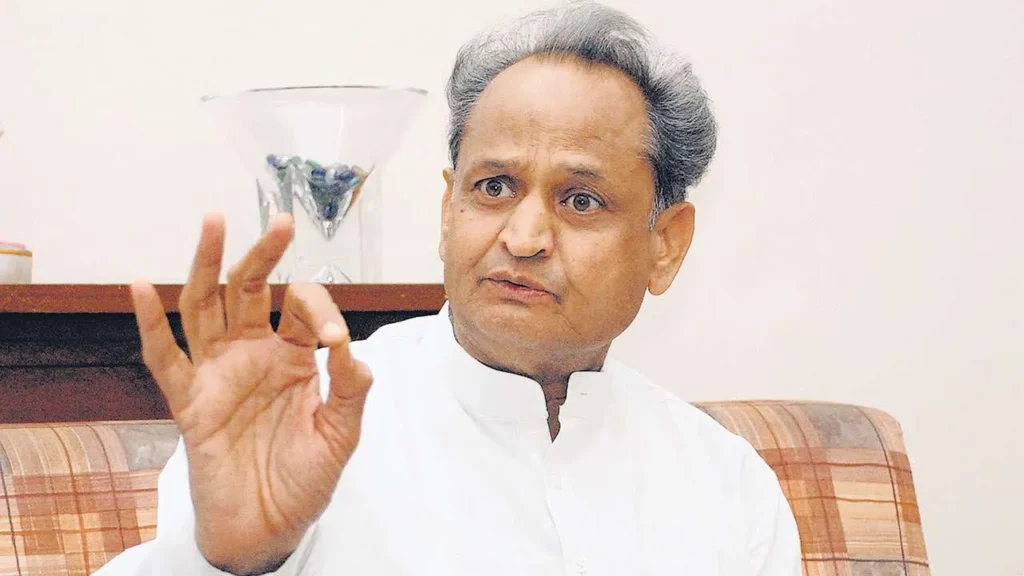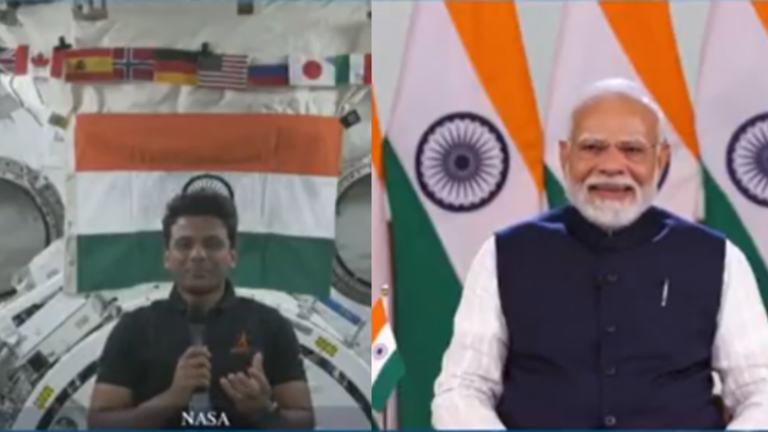Why Did BJP Call Rahul Gandhi the “Posterboy of Pakistan”?
The Bharatiya Janata Party (BJP) launched a coordinated and scathing political attack on Congress leader Rahul Gandhi following his public criticism of the Modi government’s handling of Operation Sindoor, a major counter-terror military operation against Pakistan. BJP leaders accused Rahul of undermining national security, boosting Pakistan’s propaganda, and sabotaging India’s foreign policy narrative at a time of active military engagement. The verbal offensive was backed by strong language, sweeping allegations, and a broader effort to position the BJP as defenders of the nation and Congress as weak on strategic issues.
How Did BJP Respond to Rahul Gandhi’s Criticism of Operation Sindoor?
The day’s most headline-grabbing remark came from BJP national spokesperson Pradeep Bhandari, who branded Rahul Gandhi as the “posterboy of Pakistan”. This was in direct response to Rahul’s social media statements accusing Prime Minister Narendra Modi of pausing military action and allegedly “compromising India’s prestige.”
Bhandari accused the Congress party of operating like a “pro-Pakistan fake news factory,” claiming that Rahul’s repeated criticisms were being picked up by Pakistani media and used against India. He said this mirrored a historic pattern, alleging that Congress leaders had a tendency to “send love letters to Pakistan” even in the face of aggression.
Speaks a man who is the posterboy of Pakistan! https://t.co/CGR1QOjEna
— Pradeep Bhandari(प्रदीप भंडारी)🇮🇳 (@pradip103) May 22, 2025
How Did BJP Respond to Rahul Gandhi’s Comments on Operation Sindoor?
BJP spokesperson Gaurav Bhatia accused Rahul Gandhi of “undermining the morale of the armed forces” by questioning the Modi government’s handling of Operation Sindoor. He claimed that Gandhi’s words were being directly weaponized by Pakistan to delegitimize Indian military actions on the international stage.
Bhatia intensified the attack by asking whether Rahul was acting as “India’s Leader of the Opposition or Pakistan’s Nishan-e-Pakistan”, insinuating that his remarks were indistinguishable from enemy propaganda.
Delhi: BJP National Spokesperson Gaurav Bhatia says, "All 140 crore citizens stand with Prime Minister Narendra Modi. The Prime Minister has given full freedom to the brave Indian armed forces... However, the kind of immature and highly irresponsible statements—completely… pic.twitter.com/12eivVuMOX
— IANS (@ians_india) May 23, 2025
Bhatia further questioned whether Gandhi was “India’s Leader of the Opposition or Pakistan’s Nishan-e-Pakistan”, suggesting that his comments were playing into the hands of the enemy. He stressed that during active military operations, national unity and political restraint are essential—and accused Rahul of compromising national interest for political mileage.
What Is BJP’s Broader Narrative on National Security and the Congress Party?
Beyond the personal attacks, BJP leaders used the opportunity to project the Modi government as strong on national security and the Congress party as historically weak and appeasing. Union Minister Pralhad Joshi defended the government’s actions in Operation Sindoor, calling it the “strongest response India has ever given to Pakistan.”
The BJP also criticized the timing of Rahul’s comments, which came while Indian forces were still actively neutralizing threats across the Line of Control and in terror launchpads. BJP leaders emphasized that this was not a moment for “partisan point-scoring” but for national unity, especially when soldiers were risking their lives.
In contrast, Union Minister Pralhad Joshi and BJP leader Tarun Chugh praised the armed forces and PM Modi’s leadership. They described the strikes under Operation Sindoor as “India’s strongest-ever response to Pakistan”, reinforcing the idea that Modi’s India doesn’t tolerate terror.
Delhi: BJP National General Secretary Tarun Chugh says, "What did your government do after the 26/11 attacks? When lakhs of Kashmiri Pandits were forced to flee, what did your government do? Broad daylight killings were taking place, bomb blasts shook the nation what action did… pic.twitter.com/xJK7krMVFw
— IANS (@ians_india) May 23, 2025
Why Is Rahul Gandhi’s Foreign Policy Critique Creating Such a Storm?
Rahul Gandhi didn’t limit his criticism to domestic actions—he also declared that “India’s foreign policy has collapsed” and openly questioned the performance of External Affairs Minister S. Jaishankar. These remarks drew fire from the BJP, which accused him of sowing diplomatic confusion and undermining India’s credibility with global partners.
Amit Malviya, BJP IT Cell head, called Rahul’s statements “sinister” and claimed he was “speaking the language of Pakistan.” BJP leaders argued that while Indian diplomats were working behind the scenes to de-escalate tensions and build international support, Gandhi’s public attacks weakened India’s strategic positioning. They also highlighted the international ramifications of such criticism—suggesting that adversaries like China and Pakistan could exploit internal dissent to question India’s foreign policy strength.
In BJP’s view, the contrast is stark: While Modi’s government is rallying the world against cross-border terrorism, Rahul Gandhi is portrayed as discrediting India’s global standing for political gain.
Today’s BJP press blitz against Rahul Gandhi was not just about political rivalry—it was a calculated attempt to reframe the national conversation around patriotism, military morale, and foreign policy leadership. By accusing Gandhi of echoing Pakistan’s views, BJP has moved the debate from critique to alleged betrayal. This marks yet another flashpoint in the deepening ideological divide between Congress and BJP, especially on national security and international strategy. With Operation Sindoor still unfolding, the political battle over its perception is as fierce as the battle on the ground.





















